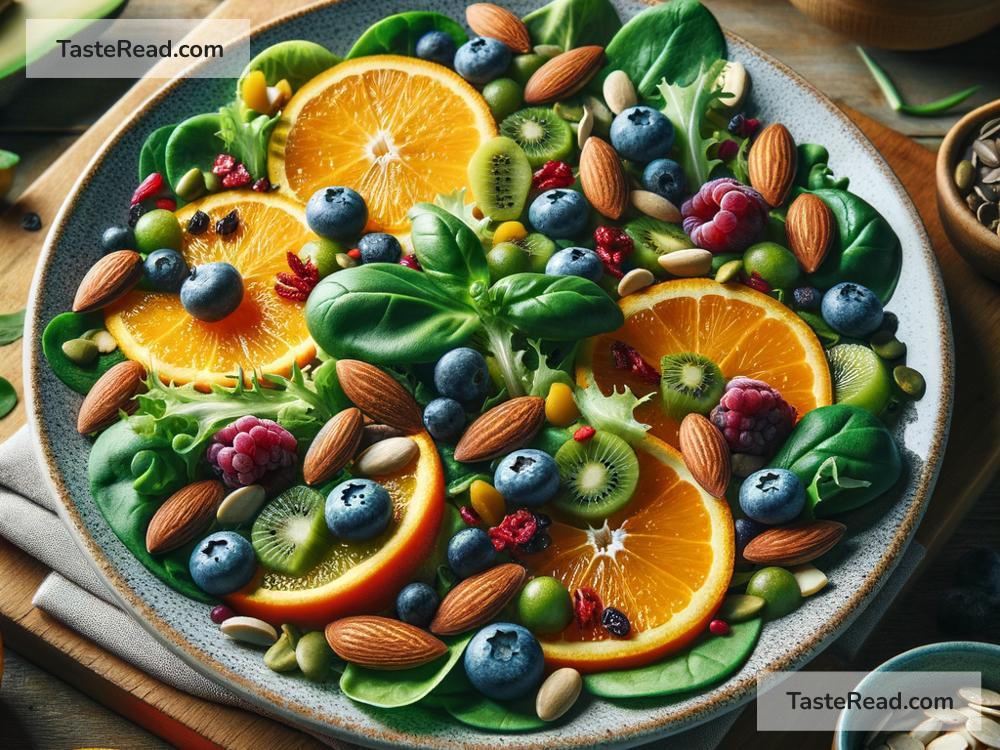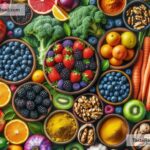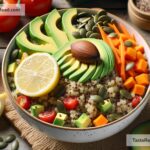Foods That Reduce the Risk of Macular Degeneration
As we grow older, our eyes face many challenges. One of these is macular degeneration, a common condition that can affect people’s vision, especially those over the age of 50. Macular degeneration is a disease that damages the central part of the retina, called the macula, which is responsible for sharp, clear vision. Over time, this condition can make it difficult to read, drive, or even recognize faces.
The good news is that what you eat can play a big role in keeping your eyes healthy. Certain foods are packed with nutrients that protect your vision and reduce the risk of macular degeneration. In this blog, we’ll explore simple, eye-friendly foods that you can easily include in your diet.
Why Food Matters for Eye Health
Your eyes need specific nutrients to function properly. Vitamins, minerals, and healthy fats help fight inflammation and protect the retina from damage caused by free radicals (unstable molecules that can harm cells). Just like the rest of your body, your eyes benefit from a diet filled with wholesome, nutrient-rich food.
According to research, eating a balanced diet that contains antioxidants, vitamins (like vitamins C and E), and minerals (such as zinc) can lower your risk of developing macular degeneration or slow its progression.
Eye-Friendly Foods to Add to Your Diet
1. Leafy Green Vegetables
Leafy greens, such as spinach, kale, and collard greens, are powerhouses for your eyes. They’re rich in lutein and zeaxanthin, two antioxidants found in high concentrations in the macula. These nutrients help filter out harmful UV and blue light, protecting your eyes from damage.
Tip: Add a handful of spinach to your smoothies or sauté kale as a simple side dish with dinner.
2. Fatty Fish
Fish like salmon, mackerel, tuna, and sardines are great sources of omega-3 fatty acids, which are healthy fats that improve eye health. Omega-3s reduce inflammation in the body and support the health of the blood vessels in the retina. Studies have shown that people who eat regular servings of fatty fish have a lower risk of eye-related diseases.
Tip: Aim to eat fatty fish at least twice a week. If fresh fish is hard to find, canned options like tuna and sardines can work too.
3. Colorful Fruits and Vegetables
Bright-colored fruits and vegetables such as carrots, sweet potatoes, bell peppers, oranges, and strawberries are rich in beta-carotene, vitamin C, and other antioxidants. These nutrients help protect your eyes from oxidative stress and strengthen your vision overall.
Tip: Snack on carrot sticks or enjoy a fresh fruit salad for dessert. The more colors you add to your plate, the better!
4. Nuts and Seeds
Almonds, walnuts, sunflower seeds, and chia seeds are packed with vitamin E, an antioxidant that helps prevent damage to your retina by fighting free radicals. Studies suggest that vitamin E can slow the progression of macular degeneration once it starts.
Tip: Grab a small handful of nuts for a snack or sprinkle chia seeds in your yogurt or oatmeal.
5. Eggs
Eggs are a simple yet effective way to support eye health. The yolk is high in lutein and zeaxanthin, two nutrients that are essential for protecting the macula. Eggs are also rich in zinc, which helps maintain the health of your retina.
Tip: Enjoy eggs for breakfast or add them to salads for a quick protein boost.
6. Whole Grains
Whole grains like quinoa, brown rice, and oats contain zinc, as well as vitamins like vitamin E. They also have a lower glycemic index compared to refined grains, meaning they help regulate blood sugar levels better. High blood sugar can increase the risk of macular degeneration, so choosing whole grains is a smart choice.
Tip: Swap out white bread for whole-grain versions and enjoy oatmeal as a filling breakfast.
7. Legumes
Beans, lentils, and chickpeas are rich in zinc and other nutrients that benefit eye health. Zinc plays a key role in protecting the retina and supporting overall vision. Plus, legumes are a low-cost, high-protein option to add to your meals.
Tip: Make a hearty lentil soup or sprinkle some chickpeas in your salads for extra nutrients.
Other Tips to Keep Your Eyes Healthy
While eating eye-friendly foods is a good start, there are other lifestyle habits that can help reduce the risk of macular degeneration. These include wearing sunglasses to protect your eyes from harmful UV rays, avoiding smoking, managing health conditions like diabetes and high blood pressure, and getting regular eye checkups.
Final Thoughts
Taking care of your vision doesn’t have to be complicated. By simply adjusting your diet to include more leafy greens, fatty fish, colorful produce, nuts, seeds, and whole grains, you can give your eyes the nutrients they need to stay strong and healthy. These foods don’t just protect your vision—they also benefit your overall health, offering a win-win for your body.
Start small by adding one or two of these foods to your daily meals. Over time, you’ll build habits that help your eyes stay healthy and reduce the risk of macular degeneration. Remember, what you eat today can make a big difference in protecting your vision for years to come.


